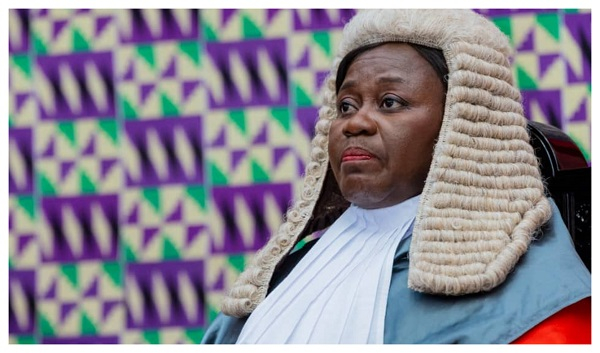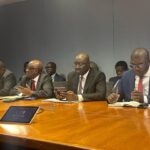The Office of the President has received two additional petitions seeking the removal of Chief Justice Gertrude Araba Esaaba Sackey Torkornoo from office, bringing the total number of removal petitions against her to five.
This development has further ignited the already volatile judicial controversy surrounding her tenure, casting a long shadow over the nation’s legal fraternity.
The latest petitions, whose authors remain shrouded in mystery, follow the suspension of the Chief Justice by President John Dramani Mahama on Tuesday, April 22, 2025, after a prima facie case was established by a committee tasked with examining the initial three petitions.
The President’s decisive action, taken in consultation with the Council of State and in accordance with Article 146(6) of the Constitution, has sparked a fervent nationwide debate about judicial independence and the potential politicization of constitutional processes.
According to sources privy to the matter, the petitions allege grave misconduct and abuse of power, although the contents of all five petitions remain veiled in secrecy, protected by Article 146 of the 1992 Constitution.
Chief Justice Torkornoo was served with the original petitions and afforded a 10-day window to respond, after which a determination was made that the allegations warranted a comprehensive investigation.
The suspension has elicited a plethora of reactions from the public, with detractors, including opposition lawmakers and legal luminaries, accusing the government of pursuing a partisan agenda aimed at reconfiguring the judiciary to serve narrow interests.
Conversely, others argue that the constitutional process is being scrupulously followed and must be allowed to run its full course.
In a stark warning, former NPP parliamentary candidate Akosua Manu cautioned that the suspension could signal the inception of what she ominously termed a “judicial capture,” while esteemed legal analysts like Prof. H. Kwasi Prempeh of the Ghana Center for Democratic Development (CDD-Ghana) have vociferously advocated for greater transparency.
Prof. Prempeh has emphatically called for the grounds and outcomes of such removal proceedings to be made public to preserve public confidence in the judiciary, asserting that “the grounds and outcomes of such removal proceedings should be made public to preserve public confidence in the judiciary.”
As the situation stands, Chief Justice Torkornoo remains suspended pending the outcome of a thorough inquiry by a five-member investigative committee, which is expected to be constituted to hear the matter. Justice Paul Baffoe-Bonnie, the most senior member of the Supreme Court, has been designated to act as Chief Justice in the interim, as provided under Article 144(6).
The country legal and political communities, as well as the broader public, now await the next phase of this unprecedented process that could potentially reshape the nation’s judicial landscape.
Akosua Manu further underscored the gravity of the situation, emphasizing that “this is just the beginning of a judicial capture.














